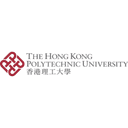Learn comprehensive management of pulmonary diseases through an interdisciplinary approach, covering diagnosis, assessment, and care strategies.
Learn comprehensive management of pulmonary diseases through an interdisciplinary approach, covering diagnosis, assessment, and care strategies.
This comprehensive course explores pulmonary diseases and their management from a holistic healthcare perspective. You'll learn about disease pathophysiology, diagnostic procedures, and interdisciplinary treatment approaches. The curriculum covers essential topics including respiratory anatomy, disease assessment, imaging interpretation, and psychosocial support for patients and caregivers. Designed for healthcare professionals and interested individuals, the course provides practical knowledge of pulmonary disease management through an integrated approach.
Instructors:
English
English, Chinese
What you'll learn
Understand the causes and symptoms of common pulmonary diseases
Interpret medical examination results for respiratory conditions
Identify various healthcare professionals roles in pulmonary care
Assess psychosocial needs of patients and caregivers
Implement interdisciplinary management strategies for pulmonary patients
Skills you'll gain
This course includes:
PreRecorded video
Graded assignments, exams
Access on Mobile, Tablet, Desktop
Limited Access access
Shareable certificate
Closed caption
Get a Completion Certificate
Share your certificate with prospective employers and your professional network on LinkedIn.
Created by
Provided by

Top companies offer this course to their employees
Top companies provide this course to enhance their employees' skills, ensuring they excel in handling complex projects and drive organizational success.





There are 7 modules in this course
This course provides a comprehensive education in pulmonary disease management through an interdisciplinary lens. Students learn about respiratory system anatomy and physiology, common pulmonary diseases, diagnostic procedures, and treatment approaches. The curriculum integrates medical knowledge with practical patient care aspects, including psychosocial support and caregiver considerations. Special attention is given to diagnostic techniques like chest imaging and laboratory testing, along with both pharmacological and non-pharmacological interventions.
Anatomy and Physiology
Module 1
Understanding of the Diseases & Patients' Needs
Module 2
Understanding & Interpretation of Chest Imaging
Module 3
Understanding & Interpretation of Medical Laboratory Results
Module 4
Management for Patients
Module 5
Management for Patients and Their Families
Module 6
Final Test and Evaluation
Module 7
Fee Structure
Instructors

2 Courses
A Distinguished Academic Journey from Oxford to Hong Kong Polytechnic University
Dr. Shirley Ngai is an Associate Professor of The Hong Kong Polytechnic University. Her basic training is in Physiotherapy with later focus on Cardiopulmonary Physiotherapy. Her teaching specialty is the area of Cardiopulmonary Physiotherapy, Exercise Science, Research Methods & Statistics. Her research interests include management of airway obstructive disease, cardiopulmonary physiotherapy, exercise physiology and medical simulation. Shirley has led several teaching and learning projects to develop teaching innovation such as Mobile Apps, online resources, Flipped Classroom, Massive Open Online Courses (MOOC) to address students’ learning needs and to enhance their learning experience. She was the recipient of 2013/14 RS Outstanding teaching award, 2013/14 Faculty award for outstanding performance in teaching (FHSS), 2016 UGC Teaching Award (Early Career Faculty Member) and Second Prize of 2018 National Teaching Achievement Award (Higher Education).

2 Courses
A Distinguished Scholar in Cardiopulmonary Physiotherapy and Innovative Medical Education
Benjamin Yee read psychology at University College London and completed his doctoral study in the Department of Experimental Psychology, Oxford. His early research utilized brain lesions in rats to dissect the contribution of the hippocampus and adjoining entorhinal cortex in memory and a form of learned inattention relevant to the attentional deficit in schizophrenia. After postdoctoral training in Oxford and Zürich (ETH), he assumed the post of research fellow in Hong Kong University, where he continued preclinical research and collaborated in psychological experiments with schizophrenia patients. Subsequently, he returned to the ETH Zürich and worked for over a decade as a senior scientist and a group leader. During this period, his expanded his research in neuropsychopharmacology with the advent of novel molecular manipulations targeting the GABA-A receptor and the glycine reuptake system at NMDA receptors. In the same period, the maternal immune activation model of schizophrenia was established as a means to study relevant early etiological processes. Next, he established a behavioural laboratory at Legacy Research Institute in Portland, Oregon, before joining the Department of Rehabilitation Sciences in PolyU four years ago. Since, he has been exploring opportunities to integrate neuroscience and psychology into the teaching and research of rehabilitation.
Testimonials
Testimonials and success stories are a testament to the quality of this program and its impact on your career and learning journey. Be the first to help others make an informed decision by sharing your review of the course.
Frequently asked questions
Below are some of the most commonly asked questions about this course. We aim to provide clear and concise answers to help you better understand the course content, structure, and any other relevant information. If you have any additional questions or if your question is not listed here, please don't hesitate to reach out to our support team for further assistance.



